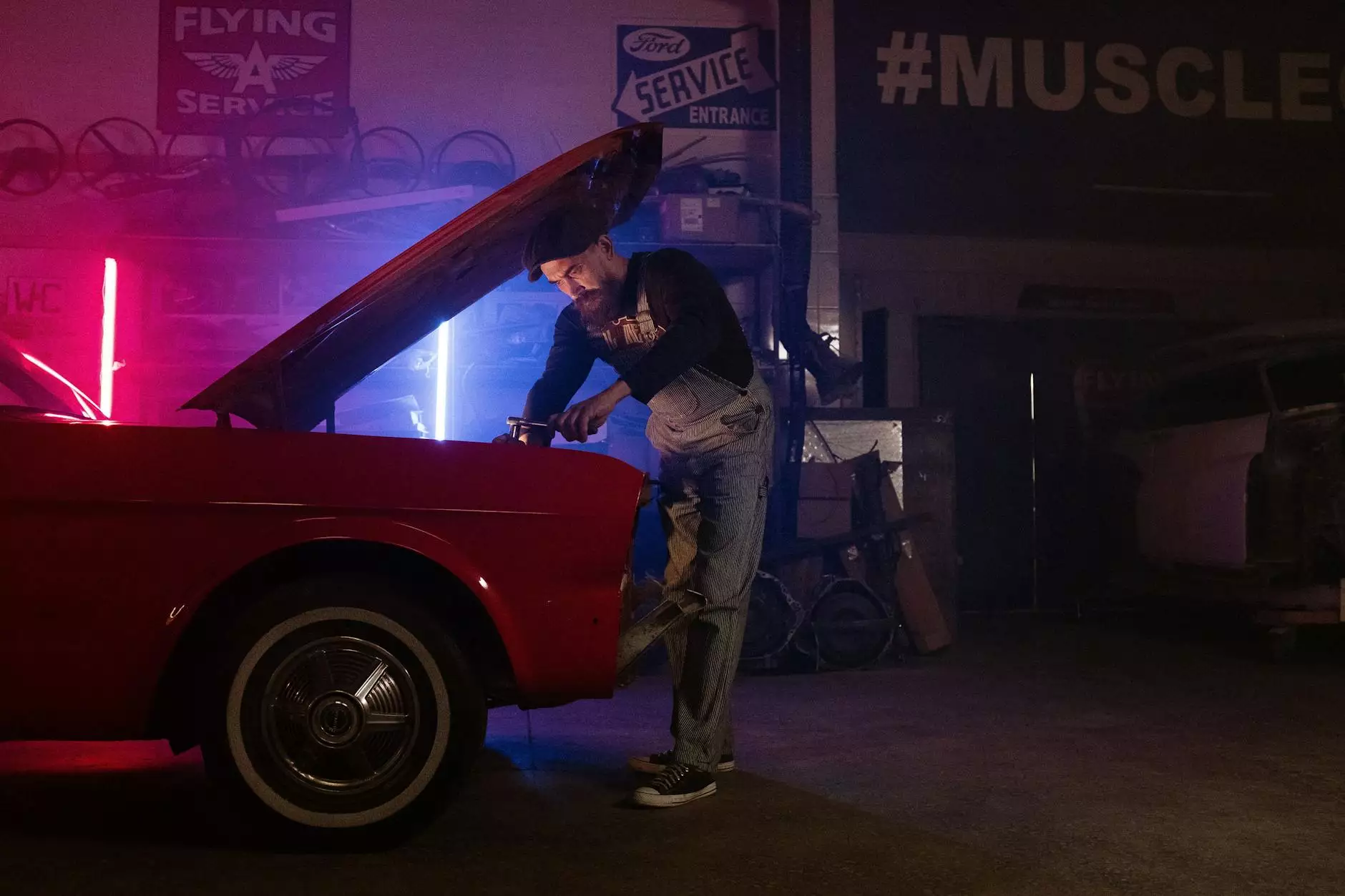Your Ultimate Guide to a Successful Used Car Search

When it comes to finding the perfect vehicle, a used car search can often feel overwhelming. With numerous options available, it's crucial to have a clear plan and a solid understanding of what you need. In this article, we will explore the key components of a successful used car search, ensuring you make a well-informed decision. We will also highlight the importance of working with reputable auto dealers and using the right resources to streamline your search process.
Why Choose a Used Car?
Many buyers are increasingly opting for used cars over new ones. Here’s why:
- Cost Savings: One of the most significant advantages of buying a used car is the price. Used cars are generally much more affordable than their new counterparts, enabling you to get more for your money.
- Depreciation: New cars lose value quickly, with most depreciation occurring within the first few years. By choosing a used car, you're not bearing that steep depreciation hit.
- Variety: The market for used cars offers a vast selection of models, years, and features. Whether you’re looking for a compact car or a family SUV, you’ll find more options available.
- Lower Insurance Costs: Insurance rates for used cars are typically lower compared to new cars, which can save you money in the long run.
Understanding Your Needs Before a Used Car Search
Before diving into your used car search, it's essential to assess your needs. Here are a few questions to consider:
- What is your budget, including insurance, taxes, and maintenance?
- How will you primarily use the vehicle? Daily commuting, road trips, or family transport?
- Do you have preferences for make, model, year, or features (e.g., fuel efficiency, safety ratings)?
- How important is the vehicle's age and mileage to you?
Answering these questions will help narrow your options and lead to a more focused used car search.
Researching Used Cars: Knowledge is Power
Once you're clear about your needs, the next step in your used car search is research. Here are some proven strategies to gather information:
- Online Resources: Websites like Kelley Blue Book, Edmunds, and Consumer Reports provide valuable insights into vehicle pricing, reliability, and reviews. Utilize these platforms to understand the market value of your desired models.
- Vehicle History Reports: Tools like Carfax and AutoCheck can help you check a car’s history, including accidents, ownership changes, and service records. Always request a vehicle history report when considering a used car.
- Test Drives: Schedule test drives to gauge the condition of the car firsthand. Pay attention to how it drives, sounds, and feels.
Where to Start Your Used Car Search
Knowing where to begin your used car search can make a significant difference. Here are some effective places to look:
- Local Dealerships: Consider visiting local auto dealerships, such as jstarcdjrofanaheimhills.com. They often have a selection of certified pre-owned vehicles that come with warranties and quality assurances.
- Online Marketplaces: Explore websites like Autotrader, CarGurus, and Cars.com, where you can filter results based on your criteria and location.
- Private Sellers: Websites like Craigslist and Facebook Marketplace allow you to buy directly from owners. However, ensure that you exercise caution and conduct thorough checks.
Evaluating Potential Vehicles During Your Used Car Search
When you find potential vehicles during your used car search, evaluating them carefully is critical. Here’s how:
- Inspect the Car: Look for any external or internal signs of damage, rust, or wear. A thorough visual inspection can reveal much about the car's condition.
- Check the Tires: Ensure the tires are in good condition and check the tread depth. Uneven tire wear can indicate alignment issues.
- Listen to the Engine: A healthy engine should run smoothly without unusual noises. Always start the engine cold and listen closely.
Professional Inspections: Why They Matter
Once you’ve shortlisted potential vehicles, it’s wise to get a professional inspection. Here’s why this step is often crucial:
- Expert Perspective: Mechanics can identify problems that you may not notice. They can provide insights into the vehicle’s overall condition and any necessary repairs.
- Negotiating Power: If the inspection uncovers issues, you can use this information as leverage to negotiate a better price or request repairs from the seller.
- Peace of Mind: Knowing that a professional has checked the vehicle adds an extra layer of security to your purchase.
Financing Your Used Car: What You Need to Know
Once you've found your ideal vehicle and have completed inspections, the next step is financing. Here are some options to consider:
- Bank Financing: Consider applying for a loan through your bank. This option usually provides favorable interest rates, especially if you have a good credit score.
- Credit Unions: Often offering lower rates than traditional banks, credit unions can be a great choice for financing your used car.
- Dealership Financing: Many dealerships provide financing options, sometimes with promotional interest rates. Always compare these rates with external options.
- Cash Payment: If you are able to, paying cash is the simplest way to avoid complicated financing terms.
Negotiating the Best Price in Your Used Car Search
Negotiation is a crucial skill in any used car search. Here are some tactics to secure the best deal:
- Do Your Homework: Armed with knowledge from your research and inspection, come to the table informed about the car’s market value.
- Start Low: Begin negotiations with a lower offer than you are willing to pay. This gives you room to maneuver towards a comfortable price.
- Be Prepared to Walk Away: If the price doesn’t meet your expectations, don’t hesitate to walk away. New opportunities arise constantly, and there are plenty of cars available.
Finalize the Purchase: Closing the Deal
Once you've agreed on a price, it's time to finalize the deal. Here’s how to ensure everything goes smoothly:
- Review the Paperwork: Go through all the documents carefully. Ensure that all terms are as agreed, and check for any additional fees.
- Transfer Title and Registration: Make sure that the title will be transferred to your name. This process is crucial to prove ownership.
- Purchase Insurance: Ensure that you have valid insurance arranged before driving off. This protects you from potential liabilities.
Post-Purchase: Caring for Your Used Car
Your journey doesn’t end once you've completed your used car search and purchased the vehicle. Here are a few maintenance tips for prolonging the life of your car:
- Regular Maintenance: Follow the manufacturer’s recommended maintenance schedule. Regular oil changes, tire rotations, and brake checks are essential.
- Keep It Clean: Regular washing and detailing not only maintain the car's appearance but also protect the exterior and interior from wear and tear.
- Be Aware of Warning Signs: Pay attention to any unusual sounds or warning lights that may indicate issues. Address problems promptly to avoid costly repairs later.
Conclusion: Your Road to a Successful Used Car Search
Embarking on a used car search can be both exciting and daunting. By following the steps outlined in this guide, you will empower yourself to make informed decisions and navigate the car-buying process confidently. Remember, the key to success lies in diligent research, careful evaluation, and strategic negotiation.
For more information on used cars and to explore a vast selection of quality vehicles, visit jstarcdjrofanaheimhills.com today. Start your journey towards finding the perfect used car, and enjoy the incredible journey that awaits you!









